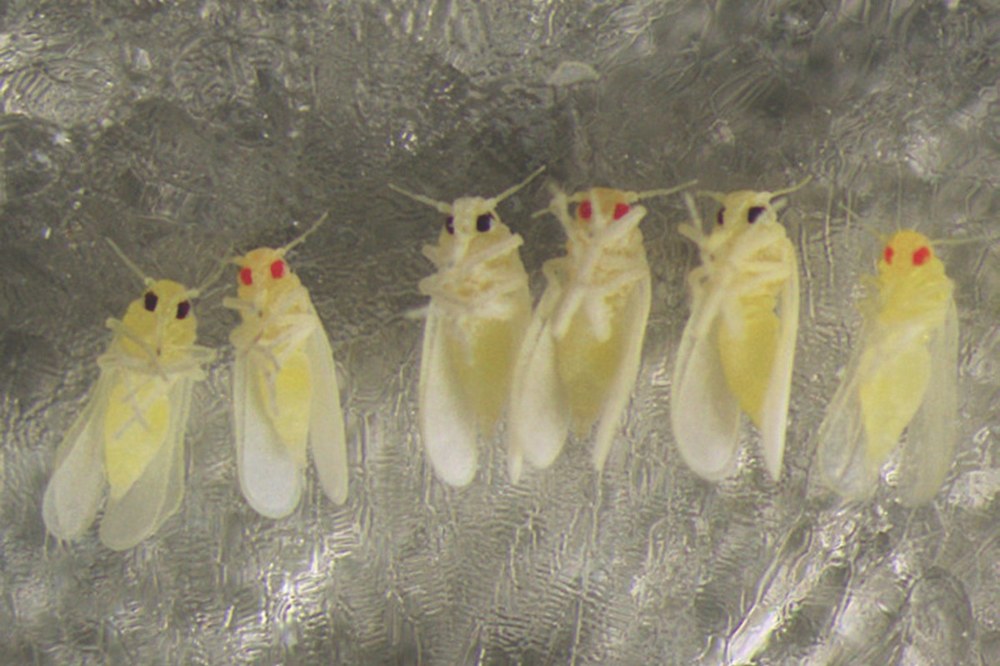Posted: October 19, 2020
Whiteflies are among the most important agricultural pests in the world, yet they have been difficult to genetically manipulate and control, in part, because of their small size.

Photo by Jason Rasgon, Penn State
An international team of researchers has overcome this roadblock by developing a CRISPR/Cas9 gene-editing protocol that could lead to novel control methods for this devastating pest.
"Gene editing by CRISPR/Cas9 is usually performed by injecting the gene-editing complex into insect embryos, but the exceedingly small size of whitefly embryos and the high mortality of injected eggs make this technically challenging," said Jason Rasgon, professor of entomology and disease epidemiology. "ReMOT Control, a specific type of CRISPR/Cas9 technique developed in my lab, circumvents the need to inject embryos. Instead, you inject the gene-editing complex, which is fused to a small ovary-targeting molecule called BtKV, into adult females and the BtKV guides the complex into the ovaries."
The team's results appeared in The CRISPR Journal on April 21.
--Sara LaJeunesse
Features
Breaking the Silence on Farm Stress
Farming has always been a demanding profession, but today's farmers face unprecedented pressures that can severely impact their mental health.
Biting Back
Research Targets Vector-Borne Diseases to Save Lives
Leading Forward
Ott brings deep connection to role of dean.


